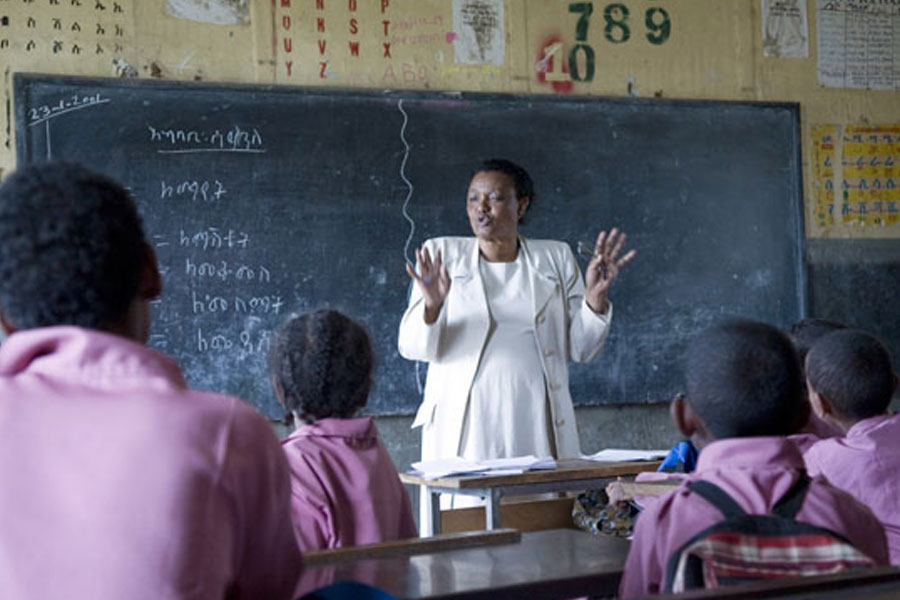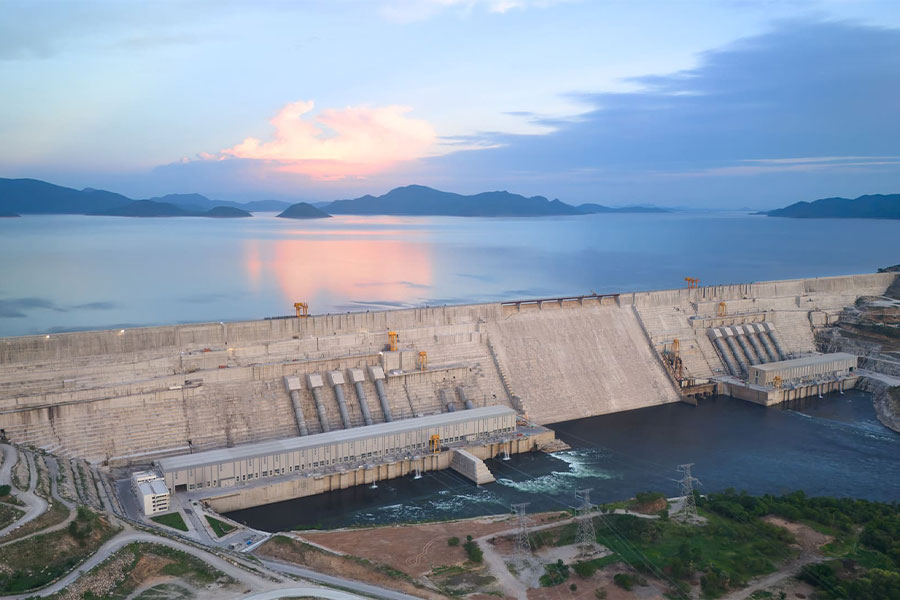
Agenda | Apr 27,2025
Feb 8 , 2020
By
I was a senior year student when our Amahric teacher asked us to read Fiqer Eske Meqabir, Haddis Alemayehu’s 1968 novel that to this day remains highly revered in modern Ethiopian literature.
I was not impressed. I did not get it. The language was too complicated, although I was born and raised in an Amharic-speaking community. It was perhaps the third or fourth Amharic book I had ever read. It was like starting with The Very Hungry Caterpillar and jumping straight to Shakespeare. The odds were stacked against me. I could not have possibly understood the context and the prose to have appreciated its brilliance.
Why did this happen?
This little anecdote is actually highly symbolic of a lot of students’ experience in school. The primary and secondary education system lacks a certain wholesomeness, even in the private colleges that fleece parents of extraordinary sums of money every single year. We do not focus on them quite as much, because higher learning institutions often make schools look like factories of knowledge.
The typical school-aged person that goes to school in Addis Abeba takes Amharic and English courses 12 times over both primary and secondary schooling years. That was the case for me. But the only time I was asked to read a book was in my senior year.
Teachers greatly underestimate the year in which children get interested in any subject matter. Students are expected to slog through school, even if they do not see its application or relevance to real life.
How am I expected to be interested in numbers when there had been no effort made to show me its relation to the law of nature? What is the purpose of civics education when no attempt is made to correlate it to how society currently functions? How am I to have a greater grasp of language when I have never been encouraged to read books written in that very same language?
It is not clear. What was clear was that our teachers really wanted us to memorise a bunch of stuff they knew we would forget once the exams were over. Memorisation served the formal requirements that shaped the education system and gave it the facade of development.
For the teachers, there was no better way to give the impression that students have been given lessons. While education is much harder to measure, all a teacher has to do to prove that students have been given lessons is to show the home work and school-standardised tests they had been given.
The same goes for the management of schools. They do not get parents that ask why their children are not becoming more curious. They get the kind of parents who are interested to know how much their children have scored. The tests those scores are being based on are rarely a matter of discussion.
For the policymakers, memorisation fits nicely into nationwide standardised testing methodologies to grade the education system's development. It is expedient and less costly.
Memorisation is perhaps an even more desired policy in higher learning institutions where graduate volumes are highly political. But considering the small window in which it is possible to get children interested in subjects, it does more harm in primary and secondary learning institutions. As children grow older, it is harder to shape them.
Policymakers and parents should instead focus on how relevant the curriculum is and how relatable and fun teachers can make it for students. Showing how a certain subject applies in their daily lives can go a great length in helping students put things in perspective. Allowing them to participate in the process and using multiple resources (such as videos and fictional novels instead of textbooks) can help them define and build on their interests.
This is more work, but it is worth the hassle if the goal is to instill in children a more innovative spirit.
PUBLISHED ON
Feb 08,2020 [ VOL
20 , NO
1032]

Agenda | Apr 27,2025

Fortune News | Sep 14,2019

View From Arada | Jan 24,2021

Editorial | Apr 22,2023

Radar | Jan 31,2021

View From Arada | Apr 09,2023

Radar | May 31,2025

Fortune News | Jul 30,2022

Radar | Jun 07,2025

Fortune News | Nov 03,2024

Photo Gallery | 156250 Views | May 06,2019

Photo Gallery | 146533 Views | Apr 26,2019

My Opinion | 135227 Views | Aug 14,2021

Photo Gallery | 135050 Views | Oct 06,2021

Dec 22 , 2024 . By TIZITA SHEWAFERAW
Charged with transforming colossal state-owned enterprises into modern and competitiv...

Aug 18 , 2024 . By AKSAH ITALO
Although predictable Yonas Zerihun's job in the ride-hailing service is not immune to...

Jul 28 , 2024 . By TIZITA SHEWAFERAW
Unhabitual, perhaps too many, Samuel Gebreyohannes, 38, used to occasionally enjoy a couple of beers at breakfast. However, he recently swit...

Jul 13 , 2024 . By AKSAH ITALO
Investors who rely on tractors, trucks, and field vehicles for commuting, transporting commodities, and f...

Sep 13 , 2025
At its launch in Nairobi two years ago, the Africa Climate Summit was billed as the f...

Sep 6 , 2025
The dawn of a new year is more than a simple turning of the calendar. It is a moment...

Aug 30 , 2025
For Germans, Otto von Bismarck is first remembered as the architect of a unified nati...

Aug 23 , 2025
Banks have a new obsession. After decades chasing deposits and, more recently, digita...

Sep 15 , 2025 . By AMANUEL BEKELE
The Grand Ethiopian Renaissance Dam (GERD), Africa's largest hydroelectric power proj...

Sep 13 , 2025
The initial budget in 2011 was 80 billion Br, but this figure swelled to a revised cost of 240 billion Br by 2024, a challenge that was exac...

Banks are facing growing pressure to make sustainability central to their operations as regulators and in...

Sep 15 , 2025 . By YITBAREK GETACHEW
The Addis Abeba City Cabinet has enacted a landmark reform to its long-contentious setback regulations, a...